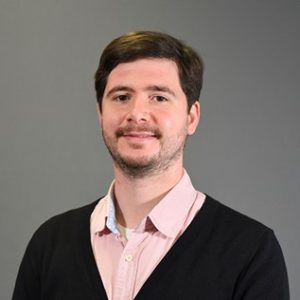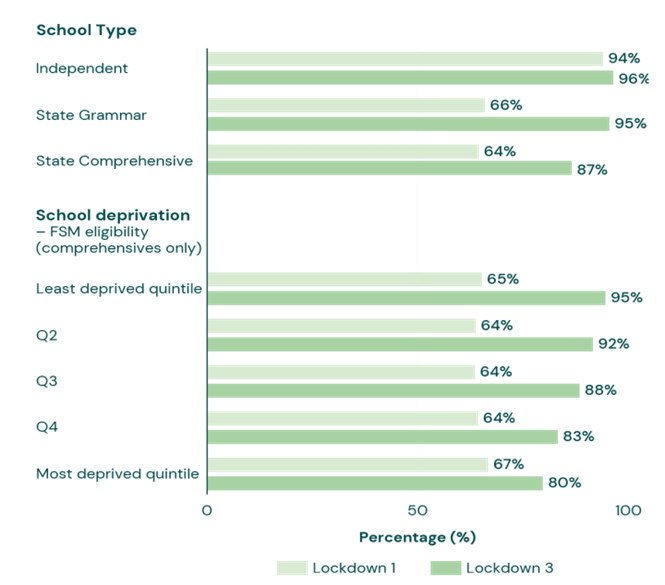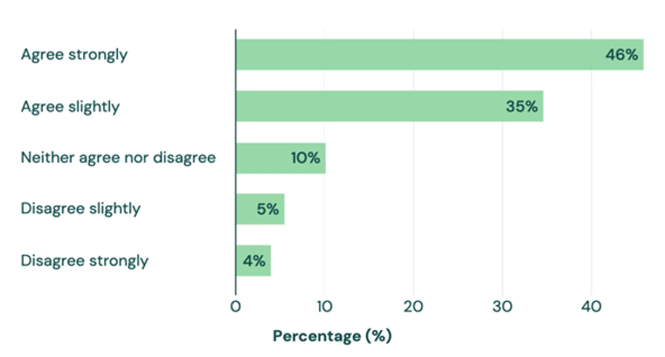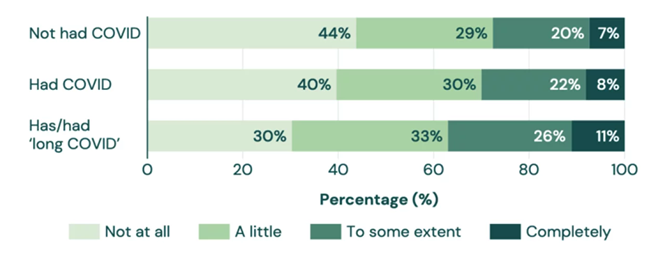
Jake Anders is the Principal Investigator of the COVID Social Mobility & Opportunities study (COSMO) which has recently released it’s first wave of data. He shares about the aims of the study, some findings from Wave 1 and what comes next.
The COVID-19 pandemic has been a generation-defining challenge in many ways. It has had profound effects on young people’s lives by disrupting their development, wellbeing and education. This is likely to have substantial, long-lasting effects on later life chances.
Early signs suggest that those from lower-income homes have been affected the most. To address these impacts, we must understand them, including the variation between groups such as socio-economic background and ethnicity. This needs high quality, representative data with sufficient participants from within these groups.
To this end — with support from UKRI’s COVID-19 rapid response fund, follow-up funding from the ESRC for Wave 2, and targeted funding from the Sutton Trust for specific elements of the work — we established the COVID Social Mobility and Opportunity Study (COSMO for short), harnessing the power of longitudinal research to understand the experiences of a cohort for whom the pandemic has had an major impact, including on their educational and career trajectories.
In particular, COSMO focuses on those who were in Year 11 in academic year 2020/21, meaning their time studying towards GCSEs (or equivalent qualifications) was highly disrupted with minimal opportunity for catch up, and these qualifications were ultimately awarded based on teacher assessed grades.
This work builds on the UK’s important tradition of cohort studies, including the pioneering 1958 National Child Development Study and 1970 British Cohort Study. More recently, studies such as Next Steps and the Millennium Cohort Study are closer to our cohort in age. However, COSMO fills a key gap in the current portfolio of cohort studies since no existing studies covered a cohort at this stage of their education at the onset of the pandemic.
COSMO is a collaboration between the UCL Centre for Education Policy & Equalising Opportunities (CEPEO), the UCL Centre for Longitudinal Studies (CLS) and the Sutton Trust. We are harnessing CEPEO’s cutting-edge research focused on equalising opportunities across the life course, seeking to improve education policy and wider practices to achieve this goal. The Sutton Trust brings 25 years of experience using research to inform the public and achieve policy change in the area of social mobility. COSMO is part of the family of cohort studies housed in the UCL Centre for Longitudinal Studies, whose expertise in life course research is world-renowned. We are working closely with Kantar Public, as our lead fieldwork partner, whose work has been crucial to the success of the project.
At Wave 1 we recruited a representative sample of over 13,000 young people across England, with sample boosts for disadvantaged and ethnic minority groups plus targeting of other hard-to-reach groups. We also reached out to one of their parents to support capturing rich family background data, along with important parental perspectives on their child. We are grateful to all participants across England who responded to our invitation to take part in this study, providing us with details of their experiences to help us build up a picture of the lives of this generation and how it has been disrupted.
Young person and parent questionnaires – enhanced with the ability to link with important sources of administrative data, including the Department for Education’s National Pupil Database – collected rich data on young people’s experiences of education and wellbeing as COVID-19-wrought disruption continued, along with information on their transitions into post-16 pathways via their unusual GCSE assessment process. The data from Wave 1 are now available for the research community thanks to UK Data Service. We hope it will prove a valuable resource for researchers understanding inequalities among a unique cohort.
To highlight a few of those inequalities evident from the Wave 1 data — bringing them to the attention of researchers and policymakers alike — we are producing a set of thematic briefings, the first four of which are available:
- Lockdown learning
- Education recover and catch up
- Future plans and aspirations
- Mental health and wellbeing
Provision of live online lessons varied by school characteristics

There are strong signs that the pandemic has severely widened existing educational inequalities. During the immediate disruption of lockdowns, education experiences differed depending upon the type of school that a young person attended, with those at independent schools and state schools with more advantaged intakes more likely to receive live online lessons.
Participants’ views on whether their academic progress has suffered

80% of participants told us their academic progress suffered because of the pandemic’s disruption — a figure that is even higher among those from less advantaged backgrounds. Moreover, there are worrying signs that initial impacts have not been addressed by the policy response in this country: only about a third of young people told us they have been able to catch up with their lost learning.
Changes to educational plans by COVID-19 status

Well over half of young people report changes to their education and career plans because of the pandemic, and that this is especially the case among those who report more acute direct experiences of COVID-19 itself, raising important questions about the consequences of these shifts if they are realised in the years to come.
Through outputs such as these, we are putting a spotlight on this vital new evidence on the effects of the pandemic on the lives of young people. In doing this, we aim to encourage engagement with the findings by policymakers and fellow researchers. We hope this will also inspire others to build on these analyses, or indeed use the COSMO data in different ways. There are many vital research questions relating to this cohort of young people, including how their post-16 transitions differ compared with earlier cohorts, which COSMO will help researchers to address.
The second wave of COSMO data collection is now underway. The same cohort members and parents are being asked to provide updates on how things have evolved in the past 12 months, including new questions about planned post-18 transitions and how the current cost of living crisis is affecting their family. We have been delighted by how many members of the study have chosen to take part once again. All being well, data will be available via the UKDS in autumn 2023. And we are currently in the planning process for a proposed Wave 3 and beyond. Starting from strong foundations, we are keen to continue build the value of COSMO for the research community in the years ahead.
About the Author
Jake Anders is Principal Investigator of the COVID Social Mobility & Opportunities study (COSMO), and Associate Professor and Deputy Director of the UCL Centre for Education Policy & Equalising Opportunities (CEPEO), University College London. Jake’s research focuses on better understanding the causes and consequences of educational inequalities, evaluating policies and programmes aiming to reduce these inequalities, and how best to do this evaluation. Jake has published widely across economics, psychology and sociology journals on these issues.
